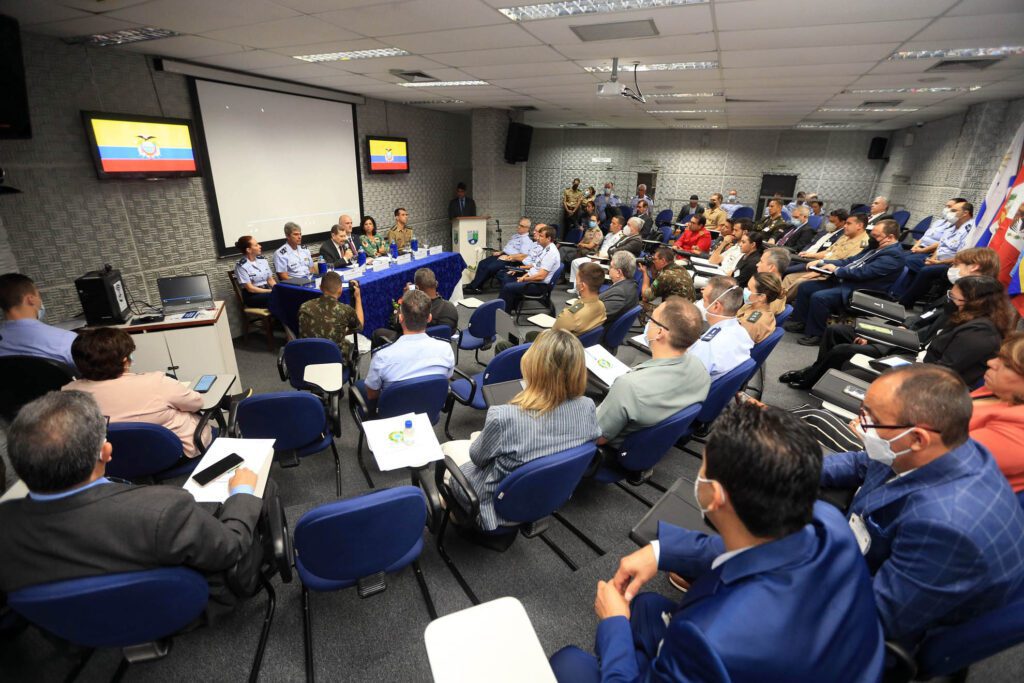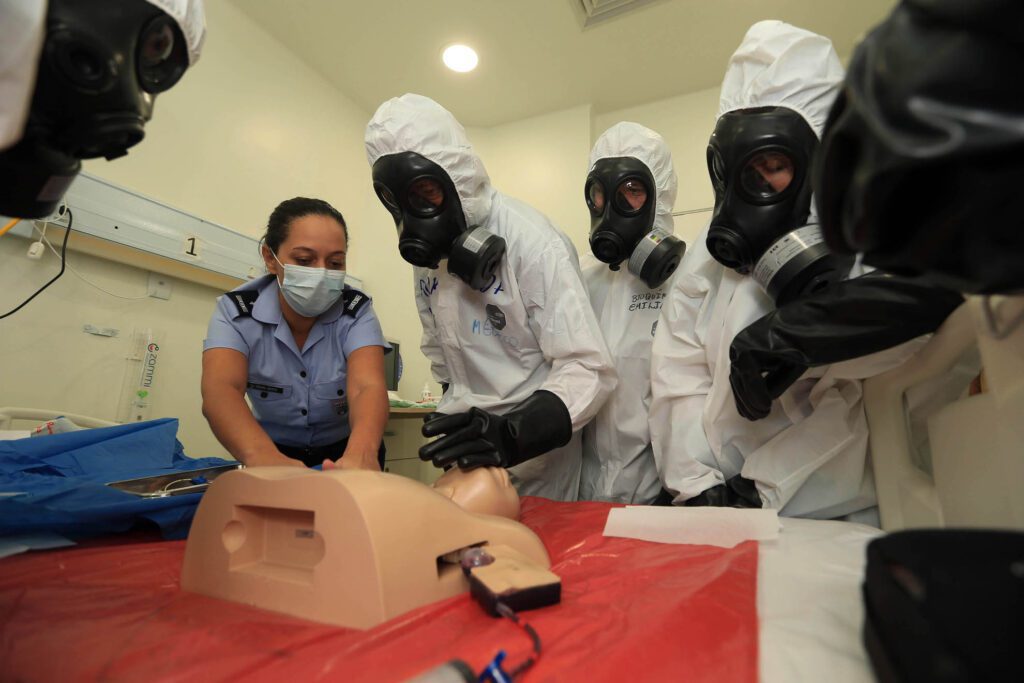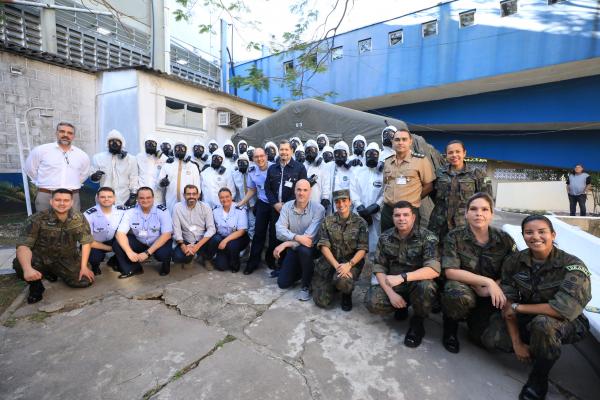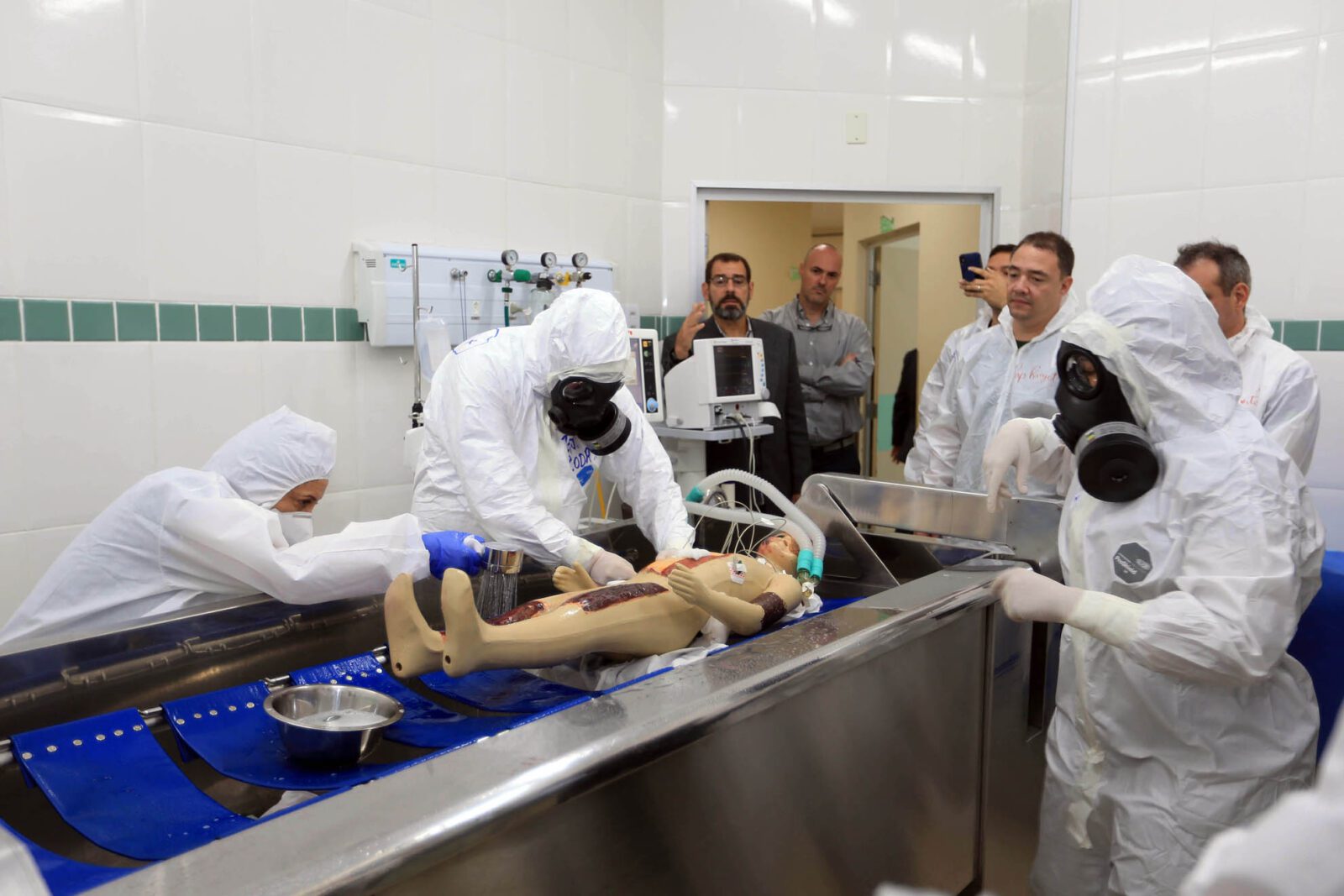Brazil is a protagonist with the first international training in the hospital field held at the Hospital da Força Aérea do Galeão (HFAG)
Air Force Agency, by Aspirante Eniele E Major Oliveira Lima
It is common knowledge that the handling of chemical weapons is a matter of utmost importance for federal agencies. In this way, science becomes an ally for safety and for the procedures of neutralization and destruction of chemical agents. The Organization for the Prohibition of Chemical Weapons (OPCW) considers certain substances that can be used as chemical weapons, such as Chlorine, Mustard Gas, and Neurotoxic Agents. According to the OPCW, chemical weapons also include ammunition, devices, and other equipment specifically designed to convert toxic chemicals into weapons.
Given the importance of this issue, Brazil has its own legislation on this matter, the Decree No. 2.977/99, which enacts the International Convention, signed in Paris in 1993, on the Prohibition of the Development, Prohibition, Stockpiling and Use of Chemical Weapons and on the Destruction of Chemical Weapons Existing in the World, which determines the total prohibition of the preparation, manufacture, storage, and use of chemical weapons.
It is in this sense that the Armed Forces of Brazil act together to promote chemical defense and security. The Brazilian Air Force (FAB) acts in the Chemical, Biological, Radiological and Nuclear defense scenario in two fronts: pre-hospital – linked to the Institute of Aerospace Medicine Brigadeiro Médico Roberto Teixeira (IMAE) and hospital – linked to the Air Force Hospital of Galeão (HFAG).
According to Medical Lieutenant Colonel Jayme Alberto Mendes the FAB’s knowledge on this subject was evidenced in the preparations for the 2014 World Cup and also for the 2016 Olympic games. “The Group has acquired expertise and recognition both in the military and also in the civilian environment. This is because the professionals who work with patients who are victims of CBRN agents must have extreme knowledge of the use of personal protective equipment, decontamination of victims, mastery of the technique of using antidotes and maintaining the life of contaminated patients,” he concludes.

Brazilian qualification
The Ministry of Science, Technology and Innovations (MCTI), in partnership with the Ministry of Defense (MD), the Ministry of Foreign Affairs (MRE) and the OPCW coordinated, in May 2022, the Course on Medical Aspects of Assistance and Protection against Chemical Weapons for Latin American and Caribbean Countries (CBRAMED-GRULAC 2022), which was the first international training course in hospital settings held in Brazil.
The course had students from 13 Latin American and Caribbean countries, among them Spain, Argentina, Mexico, Uruguay, Ecuador, Dominican Republic, Honduras, Guatemala, Peru, Chile, El Salvador, Panama, and Brazil, and had the objective of preparing the state for a better response to chemical emergencies at a regional level, according to the recommendations of the Third Review Conference on the implementation of Article X of the Chemical Weapons Convention.

The subjects addressed at the event were intra-hospital aspects related to the approach to victims of chemical weapons of war and, with the OPCW’s approval, the course was taught in Spanish to 19 students, among them, one military from the Brazilian Navy, one from the Brazilian Army, and the Chief of the Intensive Care and Treatment Center (CTI) at HFAG, Medical Lieutenant-Colonel Humberto Fonseca, representing the Air Force. “I know the extreme importance of perfecting oneself in the area of Chemical, Biological, Nuclear and Radiological defense, especially in the current context in which we find ourselves in the international scenario,” defended the doctor.
Finally, the students have now become able to analyze a situation and then design and coordinate an effective response plan for the medical management of chemical victims in the field/emergency medical facility.
According to OPCW representative Miguel Albaladejo Pomares, the course represented a forum for the exchange of experiences and served as a capacity-building for responding to events involving chemical agents. “The training also strengthened the opportunity for discussions about the practical challenges in building an effective system of emergency response against chemical agents,” he concluded.

Foto: Wesley Sousa / ASCOM/MCTI, Sargento Luiz Andrade / Esie/EB e Luiz Eduardo Perez Batista / DECEA *** Translated by DEFCONPress Team ***
